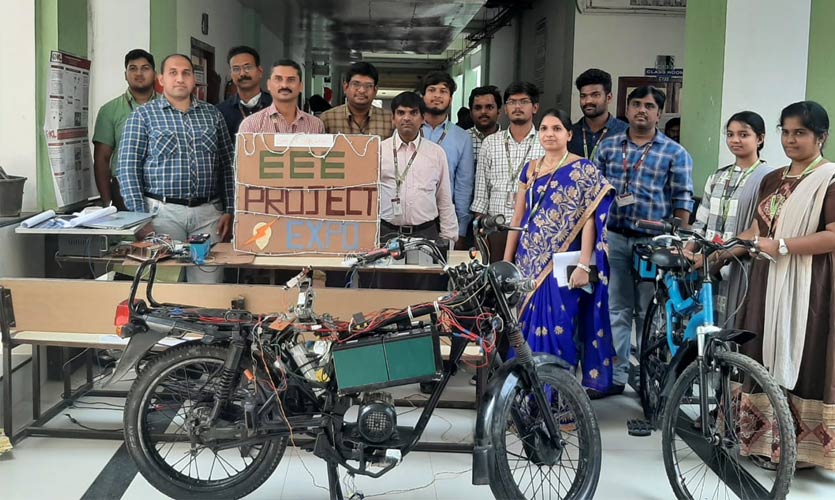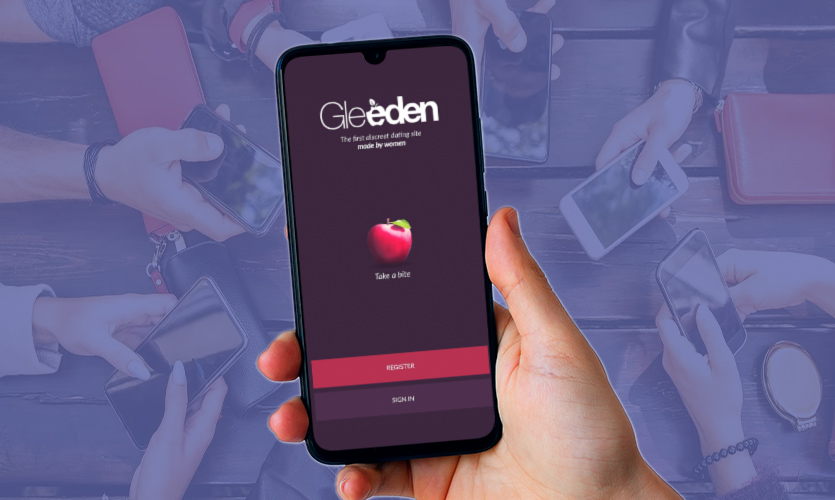The engineering students of KL deemed to be university have developed a unique and environmentally sustainable electric bike. The distinctive feature here is its wireless charging technology and cell-balancing techniques that are cost-effective at the same time. The next plan of action is to convert the prototype into a full-fledged startup idea, which will be funded by the university.
The dream team includes third and fourth year students of the Electrical and Electronics Engineering (EEE) department of KL College. However, the e-bike was never their first idea. According to Charan Sai Tiruvuri, one of the team members, this idea surfaced while working on other projects. “While working on various innovative projects like home automation, smart AC, smart water dispenser, fire extinguisher drones, and other challenging projects. Our focus was more on developing electrical vehicles, however, we felt that the cost was too high”, he said.
Talking more about the project, Tiruvuri said, “Our key focus area was to develop a cost-effective electrical vehicle with wireless charging and cell-balancing techniques.” Joining the conversation, Satyardha Pravashik, who is also part of the team, added, “The lab-based projects at our university provided a strong foundation on working with components, measurements, machines, and power electronics.”
The students started working on this project while they were in their second year Bachelor of Technology (B-Tech). Before the lockdown, they had already completed the basic model, and post the lockdown they used online platforms for its model development. A total of six students are part of the team along with expert participation of university alumni members. They include A. Sandeep, Kireeti Polasi, S Lokesh Babu, V. Sai Praveen, and K. Yashwanth Sai, who is an alumnus of the EEE Department.
The e-bike with a wireless charging system is made by recreating an existing bike. With the capacity of letting people travel up to the speed of 55 kmph and a charging capacity that can cover between 85 to 100 km, a single recharge will last for about five hours. The cell-balancing feature of the e-bike helps in releasing the maximum battery potential that retains the long-lasting charge in the e-bike. Moreover, Tiruvuri and his team believe that electric vehicles will lessen greenhouse emissions. “Although the battery technology evolves certain implications on the environment, conventional EV’s are very efficient. Our purpose of e-bike is the reconfiguration of existing bikes, hence it becomes a better choice with a better environmental solution rather than making the fossil fuel vehicles as scrap,” he added.
Explaining the technical aspect while making of the prototype, Tiruvuri said, “Our technical group of experts worked on battery designing, one on the motor, controller and other electronic specifications, charging station infrastructure, charging change over the system, new implementation system in charging like wireless charging system and then merging all the techniques of implementing electrical vehicle to make a final working product.”
Er. Koneru Satyanarayana, President of the University while appreciating the achievement of the students said, “This project of wirelessly chargeable e-bike is a testimony to the innovative mindset and futuristic approach of the KL University students. I am happy to see the students coming up with such innovative ideas and technologies.”
According to the university, it has offered a grant of Rs. 1,40,000 to the six-member team to incubate this project idea as a start-up.










